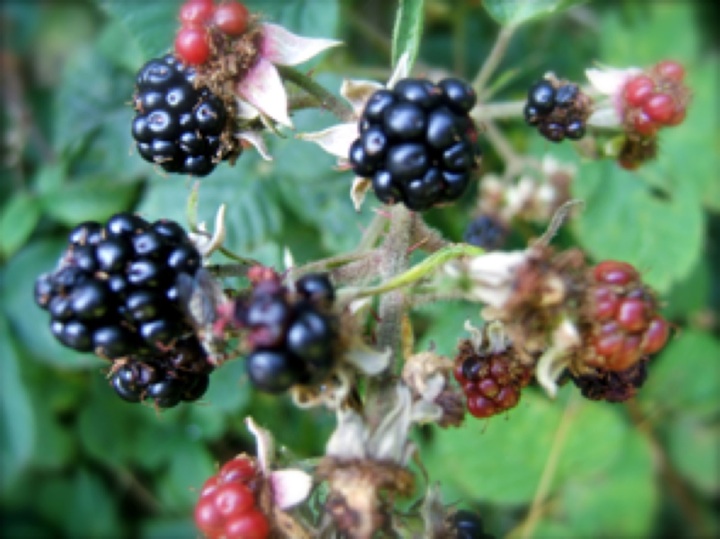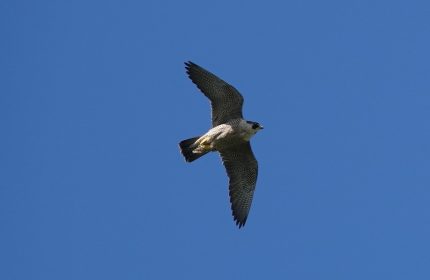Wildlife suffers with late berries
The cold, wet spring has left berries, fruits and nuts ripening late, making life difficult for birds, mice and voles that rely on them for food, experts have said.
The RSPB said there were reports from parts of the country of late-ripening autumn foods in the countryside and gardens.
The cold, wet spring could be to blame as plants did not get the necessary conditions to develop or produce fruit at the right time, the wildlife charity suggested.
Plant charity Plantlife said some species at its Ranscombe Farm reserve in Kent appeared to have been pushed back by the cold start to the year.
Plantlife’s Richard Moyse said: “There’s a great crop of blackberries here, which is good for birds, dormice and other wildlife, but blackberries flower in summer, and it is spring-flowering species, such as blackthorn, that may have suffered from the absence of bees and other pollinators in the cold and wet spring. Sloes have certainly been hard to find this autumn.”
The RSPB said it was important to provide food such as fatballs and seeds for birds, but also urged gardeners to manage gardens and land for wildlife, leaving fallen fruits on the ground for species such as blackbirds and not cutting back berry-bearing hedges.
RSPB wildlife adviser Ben Andrew said: “It’s been a difficult spring and summer for wildlife, with our Make Your Nature Count survey in June highlighting that birds were struggling to find enough natural sources of food for themselves and their chicks.
“Natural food is very important at this time of year and a lean autumn crop is the last thing that our wildlife needs. Our gardens can be lifelines for wildlife, especially when conditions are tough. A good garden, no matter how small, can provide food and shelter for a variety of wildlife during the winter and still be attractive to look at.”
National Trust conservation adviser Matthew Oates said this year’s poor autumn for berries, fruits and nuts was in contrast to last year, when a “sublime” April meant fruit flowers were well-pollinated and set well, producing plenty of fruit.
“This year we suffered the wettest April on record, which was also distinctly cold and sunless, and the beginning of May was, if anything, even worse. All this meant that insects had little opportunity to visit flowers, and that much fruit blossom was washed off the trees and bushes without being pollinated. Another whammy was provided by the bad May and June, which further hindered fruit development,” he said.
Do you feed birds and other wildlife in your garden?
Latest posts by Sally - Silversurfer's Editor (see all)
- How to help hay fever sufferers make Springtimemore comfortable - April 1, 2025
- Win a cruise of your choice with Fred. Olsen Cruise Lines - April 1, 2025
- Win a 2025/26 Ashes Experience for Two! - April 1, 2025
- Win ONE of THREE pairs of tickets for BBC Gardeners’ World Live at the NEC Birmingham - April 1, 2025
- The best of Debbie Reynolds - March 31, 2025




















